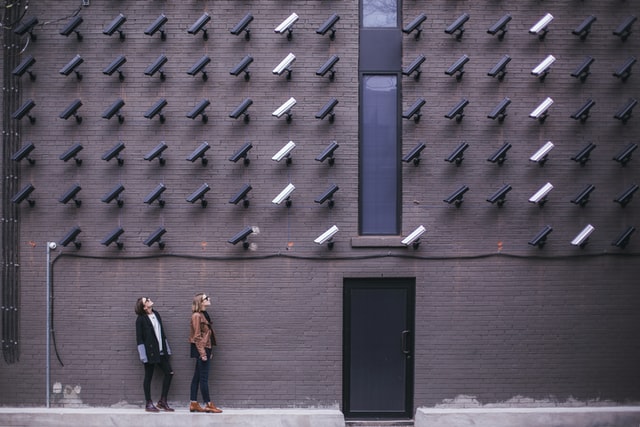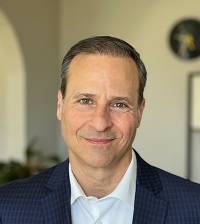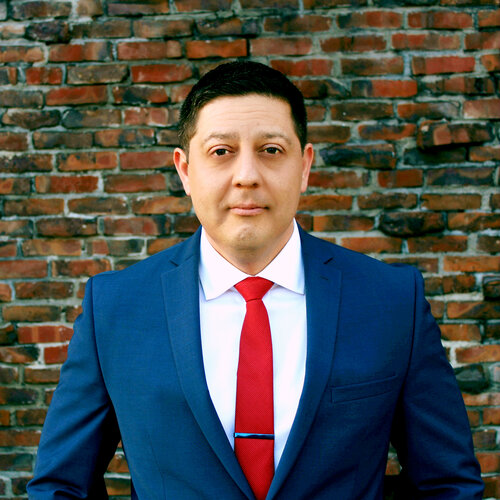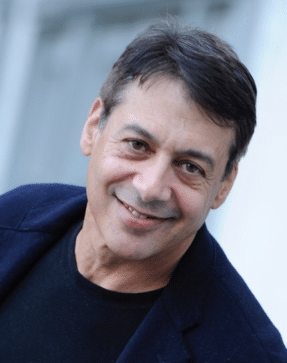
Photo: Matthew Henry on Unsplash
Cities turn to privacy boards to rebuild trust
09 June 2022
by Sarah Wray
Several US cities are following in the footsteps of Oakland and setting up privacy boards which include citizen representation. Sarah Wray outlines the benefits, limitations and lessons learned so far.
A familiar but concerning pattern has emerged with some ‘smart city’ and policing projects – surveillance technology has been implemented without the opportunity for public scrutiny or it has been introduced for one reason and then used for others.
Several examples – from Baltimore’s ‘spy plane’ to San Diego’s smart streetlights – have demonstrated how public confidence can be damaged. More cities are taking steps to overcome and avoid these issues, including appointing citizen oversight boards.
A number of intersecting factors make now an important time to bolster trust. Cities are making significant upgrades to their infrastructure with historic federal funding, including investing in data-driven tools and public safety equipment such as cameras and gunshot detection systems.
The pandemic and the murder of George Floyd in 2020 have also increased the focus on addressing systemic inequities and racial injustice. This will need to take into account that surveillance has historically disproportionately impacted black and lower-income communities
A US first
Oakland in California was the first to set up an oversight board in 2016, driven by what Brian Hofer, chair of the Oakland Privacy Advisory Commission (PAC), calls “a perfect storm”. Hofer is also the founder of Secure Justice, a non-profit that advocates against state abuse of power.
The commission’s origins date back to 2013 when Oakland’s police practices were under intense scrutiny following allegations of excessive force at Occupy Oakland protests. The US was reeling from Edward Snowden’s explosive leaks about state surveillance. Closer to home, the City of Oakland’s opaquely named ‘Domain Awareness Center’ (DAC) was beginning to stir controversy.
The proposed DAC would expand a port security project across the city and bring data together into a central hub from systems such as automated licence plate readers, gunshot detection technology, facial recognition software and hundreds of cameras. The plan sparked growing concerns about privacy, data and transparency, and pushback from activists, residents and the American Civil Liberties Union (ACLU).
“There was a belief that it would improve public safety citywide — this was the thinking from emergency personnel, fire and police,” says Joe DeVries, who is the City of Oakland’s Director of Interdepartmental Operations. “There wasn’t any thought given to privacy and concerns around the aggregation of massive amounts of data.”

“People went ballistic,” adds DeVries, who also fulfils other roles in the city including Chief Privacy Officer, after he led from the city side on establishing Oakland’s Privacy Advisory Commission. “They really came out hard at city council meetings.”
In the end, plans for the DAC were dramatically scaled back and the city established an ad hoc citizens’ committee to draft a privacy policy to govern what remained. The committee later became the Privacy Advisory Commission and went on to create the city’s surveillance equipment ordinance.
A few years on, the idea is catching on more widely. Chula Vista recently set up a Technology and Privacy Advisory Task Force made up of residents, privacy advocates and technology experts to draft a policy for how the city uses systems such as drones, automated licence plate readers and traffic signal cameras.
Chula Vista has been called “one of the nation’s most surveilled cities” and drew objections in 2020 when reports revealed that police had shared licence plate data with US Immigration and Customs Enforcement without approval from the mayor or city council. It is unclear whether the taskforce will live on once the policy is finalised.
Following San Diego’s own controversy over the police’s use of video footage from smart streetlights that had been installed to monitor traffic patterns, the city has approved the creation of a privacy board similar to Oakland’s and a related ordinance on how technolgy is used is in the works.
Amid increasing technology use, privacy storms and growing public awareness, Hofer says the issue of oversight is “reaching a critical mass”.
“I think the most important piece is that it democratises government for the first time,” he says. “Regular city residents actually get to participate in rulemaking.”
Benefits
Oakland’s Privacy Advisory Commission is one of many boards in the city that cover everything from cannabis to cultural affairs. When departments want to introduce surveillance equipment or other technology that collects or stores data, they must submit an impact statement and use policy to the PAC. The commission has an advisory role, but the city council makes the final decisions.
“The power of an advisory board really depends on how good a job the board does,” says DeVries. “With privacy, they have a lot of sway. If they don’t like something, they really give the city council pause.”
According to DeVries, the commission has approved almost every technology that’s come before them, with certain conditions, while Hofer says the council has only once over-ruled the commission – on a minor point related to third party data sharing. Acquiescence is not the goal, though.
“I always say I’m doing my job if half my hate mail comes from the activists and the other half comes from the police, and that’s where I’m at,” says Hofer.
An example of the commission in action relates to Oakland Police Department’s use of drones.

In March, the police department announced it would introduce three drones funded by a grant of US$80,000 from Oakland Chinatown Improvement Council and California Waste Solutions. A corresponding policy outlines how the drones can be used, including for search and rescue, missing-person investigations, and de-escalation efforts with barricaded armed suspects.
The drones will not use facial recognition or artificial intelligence and won’t be used to monitor protests. The police will only keep data for five days unless it is linked to a specific criminal investigation.
“The police are always going to push for more and the privacy commission is always going to push for less, and we try to strike a balance in the middle,” says DeVries.
Not all technologies with surveillance capabilities are directly police-related, but oversight is still important. In another example, Oakland’s public works department wanted to use cameras with licence plate reader technology to catch illegal dumpers.
“Illegal dumping is a huge problem in Oakland,” says DeVries. The privacy commission recommended approval of the use of the cameras at dumping hotspots with limitations, including that the data can only be retained for a specific number of days, and only accessed by illegal dumping enforcement officers, not the police.
This process already sparked dilemmas and debates.
DeVries says: “We said, ‘well wait a minute: what if that camera catches a murder or an abduction? Wouldn’t we be compelled to provide that data to the police department?’ This resulted in the creation of a list of forcible violent crimes which outlines instances where the public works department must turn data over to the police.
This drilling down into the specifics demonstrates one of the key benefits the commission brings, according to DeVries: “Having that level of detail where the advocates, the police department and the public works department are working together, it demystifies privacy, and it makes it much less controversial.”
Hofer believes boards such as the privacy commission can play an important role in restoring civic trust at a time when confidence in the justice system and government is low.
Oakland’s police department has been under federal oversight for almost two decades following allegations of police brutality and racial profiling.

People can be “bleeding in the street” and they won’t call the police, says Hofer.
The backing of the privacy commission can give police initiatives greater legitimacy.
“By being more transparent, the police that are acting in good faith, they see the upsides to participation. They know if we bless it, their life is so much easier. It will repair relationships with the community,” Hofer comments.
Some technology companies also support privacy boards. “I welcome them and the process of inclusion,” says Ian Aaron, CEO of smart streetlighting provider Ubicquia. The company inherited the contract for San Diego’s smart streetlights when it acquired the CityIQ platform from GE Current in 2020. “The public should have a say in how they want public safety technology used in their communities. This includes establishing clear rules around data use cases and retention.”
He adds: “However, time and experience has taught us that the best functioning boards establish common values, laws, and principles for governing technology. Without setting those up front, oversight becomes more challenging than it needs to be.”
Hurdles
This highlights the fact that privacy boards are not a silver bullet. A recent article by Vice revealed challenges faced by San Jose’s digital privacy advisory taskforce, which is made up of academics, technology experts and civil rights representatives. According to the report, two members of the taskforce have resigned in recent months, with five leaving since it was set up in 2018. Reasons cited included infrequent meetings and inadequate consultation about technologies such as automatic licence plate recognition.
It hasn’t been plain sailing in Oakland either. In an unusual move for the chair of a city commission, Hofer – as an individual and executive director of Secure Justice – launched a lawsuit against the police department and the City Attorney’s Office in September 2021.
It alleges that they are hindering the privacy commission’s work by failing to provide requested information about the use of automated licence plate recognition technology, letting the FBI access licence plate data and retaining data for too long.
Hofer says there’s a need to appoint an Inspector General or independent auditor to supplement the work of the commission and verify data.
“The weakness in this model everywhere is that it forces you to accept statistics and conclusions at face value,” he says.
DeVries acknowledges that privacy resources are stretched thin, but he hopes more dedicated staffing may be available in the future to consistently hold departments accountable for reporting.
It can be an uphill struggle, though.
“When you can’t fill your vacancies in human services and public works, it’s harder to advocate for resources to be spent on this,” says DeVries. “And some people still look at privacy as an add-on.”
The right mix
As well as not shoring up staffing gaps, privacy boards also can’t replace policy, experts say. The two need to increasingly work together.
Dave Maass, director of investigations at the Electronic Frontier Foundation and lead on the organisation’s Atlas of Surveillance project, comments: “An oversight board alone is not really sufficient for true community control over police surveillance. Any proposal for a board should be coupled with a robust ordinance that requires police to present a privacy impact assessment and policy proposal to a city council, and then those elected officials should have the final say on whether that technology is approved. Police should also be required to come back annually with a report on how the technology was used – and misused.”
The Community Control Over Police Surveillance (CCOPS) template legislation was developed by the ACLU and since 2016 has been adopted by over 20 cities. The policy aims to ensure residents and elected officials are included in decision-making about if and how surveillance technology is used.
In some cities, this is managed by the city council, but Hofer believes a separate privacy advisory board is essential: “[Elected officials] don’t have any more time, they didn’t get any more expertise just because they passed the law. Having an advisory body like the PAC is really what makes those goals achievable.”
The make-up of privacy boards is an important consideration for cities too. Oakland’s privacy commission incorporates nine volunteers and San Diego’s and Chula Vista’s will also be made up of volunteers, including people with expertise in areas such as law, privacy, civil rights, technology, and security. Meanwhile, San Francisco’s Privacy and Surveillance Advisory Board consists of six members of city staff with one public member.
Maass said: “It can be very useful to have members of the community look at these technologies and policies through the lens of privacy and civil rights. A lot depends on who is appointed to this committee.
“If they are simply political appointees, then you risk rubber stamping police proposals without enough scepticism. So, such a board should include members from a diversity of backgrounds and expertise, including members who reflect the interests of some of the most targeted and vulnerable communities.”
“The volunteer model, I believe, is the most pure,” says Hofer. “We’re the most likely to say no, to have the courage to stand out.”
On the other hand, it is a significant commitment for board members, ranging from a few hours a month to sometimes up to 15, which can be difficult for those with children and other responsibilities.
“On me, it’s an extreme burden, partly because I have very high standards,” he says. “I chase people, I insist they follow the process. I also watch the agendas because of all the things that slip through the cracks.”
This ‘slipping through the cracks’ can be partly down to terminology and awareness.
Decisions on technology go beyond the narrow term of privacy to encompass civil liberties and human rights more broadly. Scrutiny over the effectiveness of solutions and value for money is also essential.
As more advanced technology is deployed in cities in the police department and beyond, it’s essential that guardrails are in place, processes are transparent, and citizens have a chance to participate. Independent oversight boards could soon be an essential part of urban governance.










